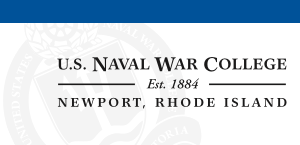Naval War College Review
Abstract
Even before the United States and its al- lies embarked on war in Iraq in 2003, the question of whether it is acceptable to strike enemies without clear provo- cation was an increasingly vexing one to policy makers, academics, and legal ex- perts. “Preemptive war” (attacking an enemy who is clearly about to strike you first) has always been an acceptable response to a dire and clear threat. But “preventive war” (striking a potential enemy while circumstances are favor- able to the attacker, or striking in early anticipation of a possible, or even only theoretical, threat) has traditionally been regarded in the international community as not only unwise but immoral.
Recommended Citation
Nichols, Thomas
(2009)
"Striking First: Preemption and Prevention in International Conflict,"
Naval War College Review: Vol. 62:
No.
1, Article 13.
Available at:
https://digital-commons.usnwc.edu/nwc-review/vol62/iss1/13

